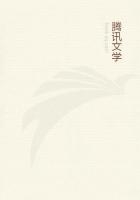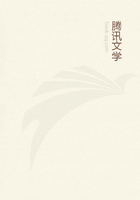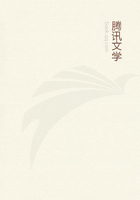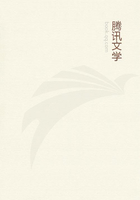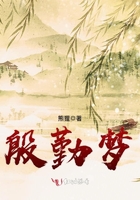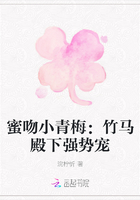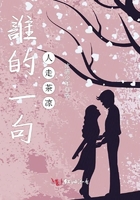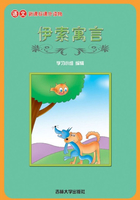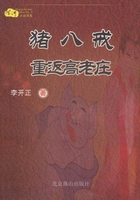The revelations in this matter which are contained in the 'Divine Comedy' itself are simply immeasurable; and it would be necessary to go through the whole poem, one canto after another, in order to do justice to its value from this point of view.Happily we have no need to do this, as it has long been a daily food of all the countries of the West.Its plan, and the ideas on which it is based, belong to the Middle Ages, and appeal to our interest only historically; but it is nevertheless the beginning of all modern poetry, through the power and richness shown in the description of human nature in every shape and attitude.From this time forward poetry may have experienced unequal fortunes, and may show, for half a century together, a so-called relapse.But its nobler and more vital principle was saved for ever;and whenever in the fourteenth, fifteenth, and in the beginning of the sixteenth centuries, an original mind devotes himself to it, he represents a more advanced stage than any poet out of Italy, given--what is certainly always easy to settle satisfactorily--an equality of natural gifts to start with.
Here, as in other things in Italy, culture--to which poetry belongs--precedes the visual arts and, in fact, gives them their chief impulse.
More than a century elapsed before the spiritual element in painting and sculpture attained a power of expression in any way analogous to that of the 'Divine Comedy.' How far the same rule holds good for the artistic development of other nations, and of what importance the whole question may be, does not concern us here.For Italian civilization it is of decisive weight.
The position to be assigned to Petrarch in this respect must be settled by the many readers of the poet.Those who come to him in the spirit of a cross-examiner, and busy themselves in detecting the contradictions between the poet and the man, his infidelities in love, and the other weak sides of his character, may perhaps, after sufficient effort, end by losing all taste for his poetry.In place, then, of artistic enjoyment, we may acquire a knowledge of the man in his 'totality.'
What a pity that Petrarch's letters from Avignon contain so little gossip to take hold of, and that the letters of his acquaintances and of the friends of these acquaintances have either been lost or never existed! Instead of Heaven being thanked when we are not forced to inquire how and through what struggles a poet has rescued something immortal from his own poor life and lot, a biography has been stitched together for Petrarch out of these so-called 'remains,' which reads like an indictment.But the poet may take comfort.If the printing and editing of the correspondence of celebrated people goes on for another half-century as it has begun in England and Germany, illustrious company enough sitting with him on repentance.
Without shutting our eyes to much that is _.artificial in his poetry, where the writer is merely imitating himself and singing on in the old strain, we cannot fail to admire the marvelous abundance of pictures of the inmost soul -- descriptions of moments of joy and sorrow which must have been thoroughly his own, since no one before him gives us anything of the kind, and on which his significance rests for his country and for the world.His verse is not in all places equally transparent; by the side of his most beautiful thoughts stands at times some allegorical conceit or some sophistical trick of logic, altogether foreign to our present taste.But the balance is on the side of excellence.
Boccaccio, too, in his imperfectly-known Sonnets, succeeds sometimes in giving a most powerful and effective picture of his feeling.The return to a spot consecrated by love (Son.22), the melancholy of spring (Son.
33), the sadness of the poet who feels himself growing old (Son.65), are admirably treated by him.And in the 'Ameto' he has described the ennobling and transfiguring power of love in a manner which would hardly be expected from the author of the 'Decameron.' In the 'Fiammetta' we have another great and minutely-painted picture of the human soul, full of the keenest observation, though executed with anything but uniform power, and in parts marred by the passion for high-sounding language and by an unlucky mixture of mythological allusions and learned quotations.The 'Fiammetta,' if we are not mistaken, is a sort of feminine counterpart to the 'Vita Nuova' of Dante, or at any rate owes its origin to it.
That the ancient poets, particularly the elegists, and Virgil, in the fourth book of the Aeneid, were not without influence on the Italians of this and the following generation is beyond a doubt; but the spring of sentiment within the latter was nevertheless powerful and original.
If we compare them in this respect with their contemporaries in other countries, we shall find in them the earliest complete expression of modern European feeling.The question, be it remembered, is not to know whether eminent men of other nations did not feel as deeply and as nobly, but who first gave documentary proof of the widest knowledge of the movements of the human heart.
Why did the Italians of the Renaissance do nothing above the second rank in tragedy? That was the field on which to display human character, intellect, and passion, in the thousand forms of their growth, their struggles, and their decline.In other words: why did Italy produce no Shakespeare? For with the stage of other northern countries besides England the Italians of the sixteenth and seventeenth centuries had no reason to fear a comparison; and with the Spaniards they could not enter into competition, since Italy had long lost all traces of religious fanaticism, treated the chivalrous code of honour only as a form, and was both too proud and too intelligent to bow down before its tyrannical and illegitimate masters.We have therefore only to consider the English stage in the period of its brief splendor.

